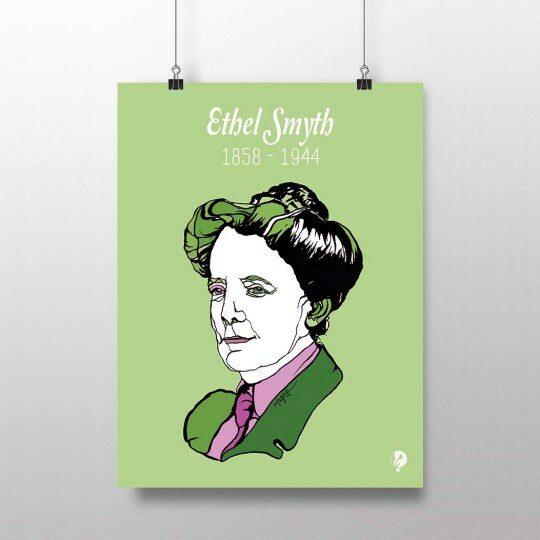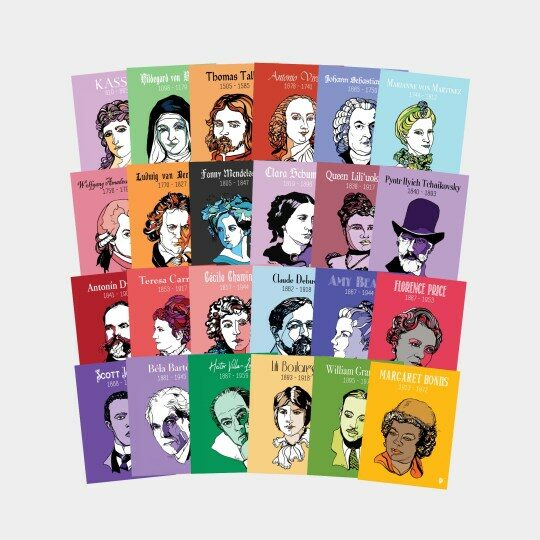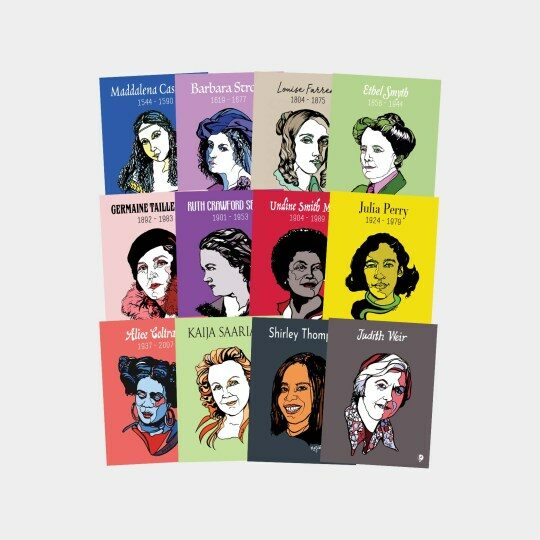
Composer Information
Birth - April 22, 1858 | Sidcup, UK
Death - May 8, 1944 | Woking, UK
Nationality - English
Era - Modern
Composer Biography
Ethel Smyth was born to a middle-class family, the daughter of a military general. Her father opposed the idea of her studying music formally, but she became such a terror to the household that he allowed her to move to Leipzig when she was 18.
She was the first female student of Carl Reinecke, though she found he did not give her the attention she deserved. She left the conservatory after a year and began to study privately with Heinrich von Herzogenberg. He introduced her to a number of prominent European composers, including Brahms, Clara Schumann, and Tchaikovsky. It was Tchaikovsky who said that her music was extremely colorful and urged her to compose orchestral works.
While her music was generally well-received, she submitted her music to publishers under the moniker “E. M. Smyth” as a way of obscuring her sex. In 1892, she began composing her first opera on a libretto she wrote with her friend and eventual lover, Harry Brewster. He was her only male partner; Smyth preferred the company of women throughout her life.
In 1910, Smyth met Emmeline Pankhurst and was inspired to dedicate two years of her life to the Women’s Suffrage movement. This time of activism inspired her most famous composition, the protest song, “The March of the Women.”
She was knighted in 1922 and was awarded an honorary doctorate from Oxford in 1926. She began going deaf in the 1920s, which inspired her to take up writing. She penned ten volumes of memoirs during her life, all in a stream of consciousness style similar to that of Smyth’s friend, Virginia Woolf.
Until recently, she was the only woman to have an opera performed by the Metropolitan Opera in New York City. Her musical style is quite diverse and varied, changing piece to piece, perhaps a reflection of her ever-changing whims.
See Also
- Louise Collis. Impetuous Heart: The Story of Ethel Smyth. London: W. Kimber, 1984.
- Ethel Smyth. Impressions That Remained: Memoirs. London: Longmans, Green and Co., 1919.
- Ethel Smyth. Female Pipings in Eden. London: Peter Davies, 1934.
- Christopher St. John. Ethel Smyth: A Biography. London: Longmans, Green and Co., 1959.
Playlist
A playlist of music composed by Ethel Smyth.
Listen on this page, or click the button below to open the playlist in Spotify.
Find Musical Examples By Ethel Smyth
Title
Score
Recording
Analysis
All Poster Lines
Check Out All Our Poster Lines



